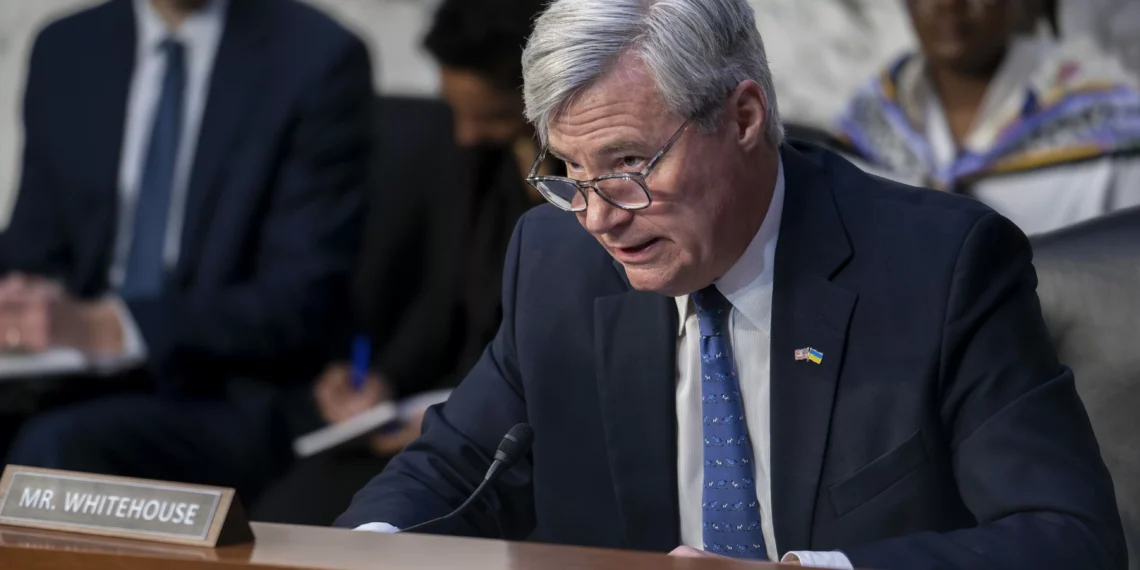The United States Supreme Court is the highest judicial body in the country, responsible for interpreting the Constitution and ensuring the protection of our rights and freedoms. As such, the decisions made by the Court have a profound impact on the lives of American citizens. It is crucial that the Court operates with transparency and integrity, free from any external influences. However, recent revelations have shed light on a serious issue that undermines the credibility of the Court and raises questions about its impartiality.
It has come to light that parties appearing before the Supreme Court can fund groups that file briefs supporting their arguments, without any disclosure. This means that litigants can essentially buy support for their case, without the public or the Court knowing about it. This gaping hole in Supreme Court rules has allowed for a dangerous level of influence to seep into the highest court in the land.
The fact that litigants can fund groups that file briefs in support of their case is not inherently problematic. In fact, it can be seen as a way for individuals and organizations to exercise their First Amendment right to free speech. However, the lack of disclosure is a major concern. It creates a situation where the public is left in the dark about potential conflicts of interest and outside influences on the Court’s decisions.
This issue was brought to light by a recent report from The Intercept, which revealed that almost all of the groups filing amicus briefs in support of a particular side in a case had received funding from the parties involved. This includes cases involving controversial issues such as abortion, gun control, and immigration. The report also found that these groups received significant financial support from corporations and wealthy individuals, raising questions about their true motivations and agendas.
The lack of disclosure in these cases is alarming and raises serious questions about the integrity of the Court. How can we trust that the decisions made by the Justices are based solely on the merits of the case, when there is a possibility of outside influence? The Supreme Court is meant to be a neutral and independent body, not swayed by special interests or hidden agendas. The current rules allow for a dangerous level of influence that has the potential to undermine the very foundation of our justice system.
The problem is compounded by the fact that the Court’s rules do not require parties to disclose their funding of amicus briefs. This means that even if a litigant chooses to fund a group, they are not required to disclose this information to the Court or the public. This lack of transparency is unacceptable and goes against the principles of fairness and justice that our legal system is built upon.
It is time for the Supreme Court to address this issue and close the gaping hole in its rules. The Court must require litigants to disclose any funding provided to groups filing amicus briefs in support of their case. This will ensure transparency and allow the public to make informed judgments about potential conflicts of interest.
Some may argue that this requirement would be burdensome and could discourage groups from filing amicus briefs. However, this argument holds little weight when compared to the importance of maintaining the integrity of the Court. The Supreme Court must prioritize the public’s trust in its decisions over the convenience of litigants and outside groups.
In addition to requiring disclosure, the Court should also consider implementing stricter guidelines for amicus briefs. This could include limiting the number of briefs that can be filed in a case and ensuring that they are truly representative of a diverse range of perspectives. This will prevent a small group of wealthy individuals or corporations from exerting undue influence on the Court’s decisions.
In conclusion, the revelation that parties appearing before the Supreme Court can fund groups filing amicus briefs without disclosure is deeply concerning. It undermines the integrity of the Court and raises questions about its impartiality. The Court must take immediate action to address this issue and implement stricter rules for tracking links between litigants and influence groups. It is time for the Supreme Court to uphold its duty to the American people and ensure that justice is served without any external influences.







